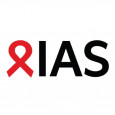On this International Transgender Day of Visibility, we at IAS – the International AIDS Society – recommit ourselves to a people-first approach that actively opposes any barriers to gender-affirming care.
Gender-affirmative healthcare supports and affirms an individual’s gender identity and/or gender expression, including any range of social, psychological, behavioural or medical interventions. Trans people, including gender-diverse and gender-expansive people, experience their gender as incongruent to that presumed at birth.
Medical interventions, such as the provision of hormone therapy and surgical procedures, improve the quality of life and well-being of trans people. We know that trans women who receive gender-affirming care have better HIV outcomes than those who do not. Also, integrating gender-affirming care with HIV treatment and prevention increases access and engagement in care for trans people living with and vulnerable to acquiring HIV.
But most trans people still face stigma, discrimination, social exclusion and health and healthcare inequities. For example, almost three-quarters of trans people in an Australian study experienced gender insensitivity in sexual healthcare encounters, which was associated with lower likelihood of HIV and STI testing. There are insufficient data from low- and middle-income countries, but it is known that high levels of stigma and gender-based discrimination in healthcare facilities reduce access of trans people to medical visits and HIV testing services.
Laws restricting access to gender-affirming care increase the vulnerability of trans people, including adolescents, to poor mental health and suicide and can increase vulnerability to acquiring HIV. Attacks on providers and restrictions on gender-affirming care will have an extremely detrimental impact on HIV prevention and treatment continuum of care outcomes and other healthcare services.
Legal gender recognition is a fundamental human right that is critical for equal participation in society. Ensuring that people have documentation that accurately recognizes their gender is the only path forward for trans health equity from a health and human rights perspective. It overcomes barriers to accessing health and social services, travel, immigration, education and employment opportunities, and civic participation. It also respects privacy, safety and well-being.
All trans people, including children and adolescents, should be able to affirm their gender legally through a simple administrative process that allows them to choose their gender marker, including non-binary options.
Today, more countries allow for legal gender recognition, but many still deny this right or require surgical sterilization to access it.
The IAS calls on countries to put people first and implement evidence-based policies, programming and resourcing for trans community-led initiatives. Priorities include improving access to gender-affirming healthcare and legally recognizing gender in documentation. We must respect, protect and elevate the trans experience, globally.
The IAS wishes to thank the following contributors for their expertise and time they committed to this statement: Asa Radix, Ayden Scheim, Beatriz Grinsztejn, Nadia Dowshen, Noah Adams, Renata Sanders, Sari Reisner, Teddy Cook







Comments
Comments